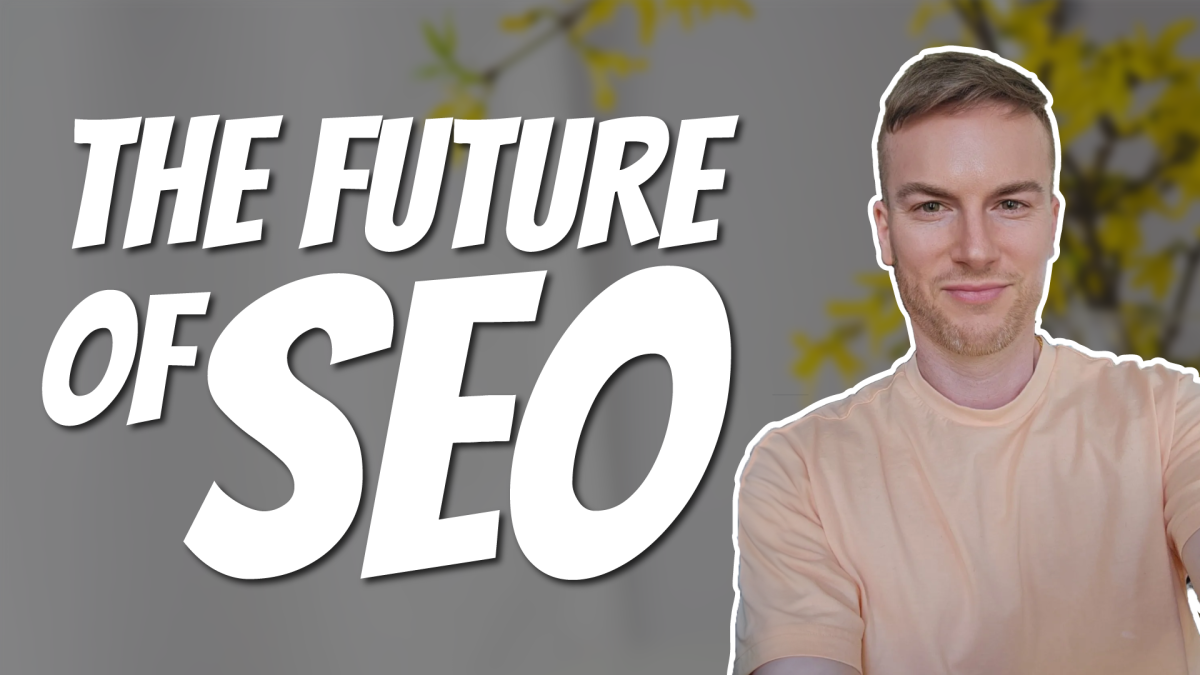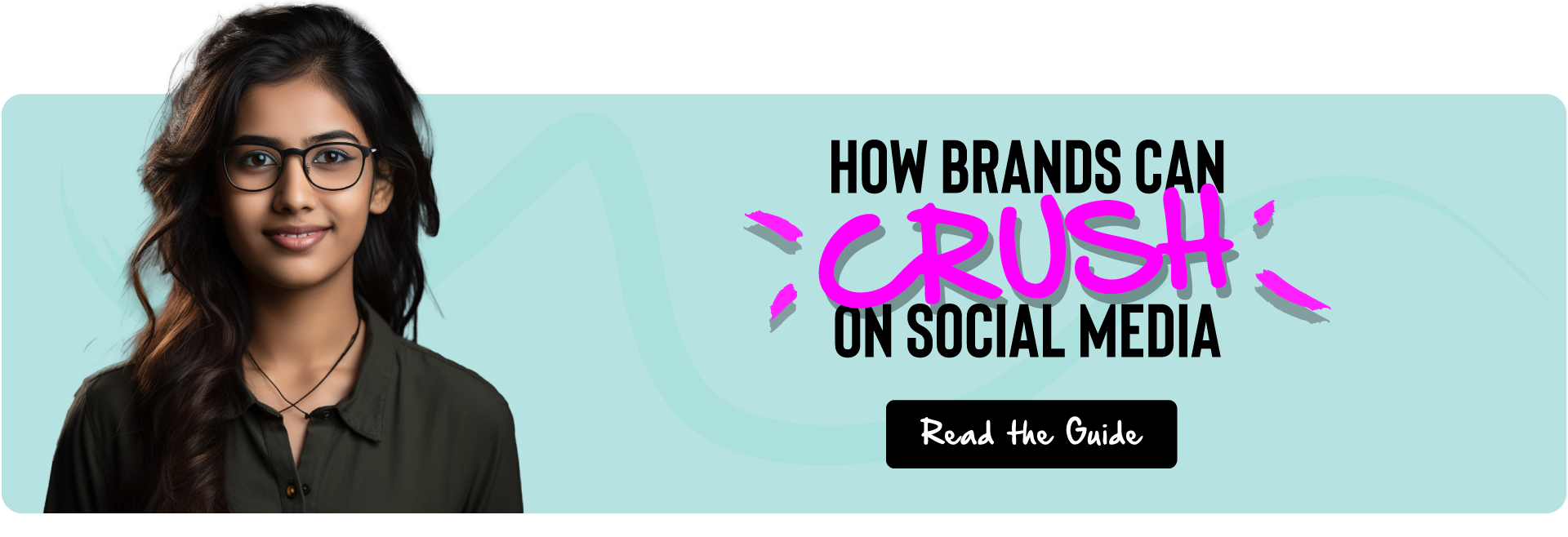
Is SEO still relevant in 2024 and beyond? This is the question I set out to explore. The short answer is yes, but there are many things to consider when thinking about SEO / content strategy. A lot has changed and will continue to change.
This post is not going to teach you anything about SEO, more so about the strategy or philosophy around SEO, such as:
👉 How branding is important for SEO
👉 How AI content is changing the SEO game
👉 Alternative search platforms such as TikTok and YouTube
👉 How low-intent keywords can be good for SEO
👉 What does ‘content marketing’ even mean in 2024
Is SEO Still Relevant in 2024?
SEO is really only relevant if people are searching for content, but not everyone searches for content. Put another way, not every content worth creating needs to have high SEO value. That’s why Targeting Low-Intent Keywords Can Actually Be Good for SEO
There are two ways people consume – whether content on Netflix, YouTube, Google, or shopping in a grocery store. They either:
👉 Search and find
👉 Browse and discover
Often people don’t know what they are looking for, but know it when they see it.
Content syndication platforms use algorithms to target users based on their interests. So a post about a new scandal with the Kardashians, or Mark Zuckerberg’s secret underground apocalypse bunker is likely to attract some interest and consumption, without there being a lot of initial search volume.
If something is interesting and well targeted, it will appear in people’s feeds and attract attention.
So the barometer of making content relevant is that it needs to be interesting first, not necessarily SEO enriched.
So is SEO still relevant in 2024?
Is Content Still King?
To answer the question of whether SEO is still relevant, we need to first ask the question – is content still king. Of course, this phrase made famous by Bill Gates, who many would not consider a strong marketer – he also coined this phrase over 2 decades ago, so take that for what it’s worth.
Content is not king. Video content is king.
👉 Patrick Bet-David
👉 Gary Vaynerchuk
👉 Alex Hormozi
👉 Chris Do
👉 Rand Fishkin
👉 Simon Sinek
…and many others
The only reason we know who any of these people are is because they post video content. If they never posted videos and only wrote text posts, books, or blogs… most of us would never have ever heard of them.
Video content is king. This is evident in the rise of short-form video platforms such as TikTok, Facebook & Instagram Reels, YouTube Shorts, and others.
These platforms also have a growing number of search queries as people are now using them as search engines to replace Google. Travel tips, food recommendations, product reviews, etc. people trust these sources because they are typically from real people who are not trying to sell us anything.
This has also given rise to creators such as Marques Brownlee (MKBHD) and Keith Lee who have amassed large followings as a result of their seemingly honest, unfiltered, and impartial reviews.
Google SERPs, on the other hand, are dominated by SEO-enriched content from clever marketers trying to capture a customer base. These articles may have biases, ads, call-to-actions, and now most likely written by AI… People may be wary that the content they are consuming is not accurate or has some ulterior commercial motive behind it rather than trying to be honest, accurate, and helpful.
Is Google Still Relevant?
As mentioned, over the past few years, we’re seeing a trend where Google search is becoming less relevant with how people search and access content. A New York Time article titled – For Gen Z, TikTok is the New Search Engine which highlight Google’s dominance is being challenged by alternative platforms such ChatGPT, YouTube, TikTok, and others, which offer more interactive and personalized search experiences.
With the advancements in AI and user-generated content, users now have more ways to discover information and engage with content. ChatGPT, for example, offers a conversational search experience, while TikTok’s algorithm serves up bite-sized, visually engaging content. These platforms are attracting users, particularly younger demographics, who seek more dynamic and immersive search experiences.
AI Generated Content and SEO
I mentioned the rise of AI. It’s worth spending some more time on this. AI content is often riddled with inaccuracies or doesn’t dive deep enough. This is because the person using the AI tool isn’t always a subject matter expert. They don’t know the right questions to ask, and don’t have the expertise to vet the article.
The name of the game here is quantity over quality.
I don’t have any issue with using AI to help you write content or do whatever else you need it to do, but we as marketers need to be aware that there is a tsunami of new content flooding the internet everyday. This makes it even more difficult to stand out and rank for certain keywords.
Is ChatGPT a Google Killer?
ChatGPT has been touted by some as the Google killer. As such, what does that mean for the future of SEO?
The logic goes like this:
- People will now use ChatGPT to search for an answer to their query rather than Google search.
- Instead of being directed to websites where they can discover brands, the information is presented directly in ChatGPT.
- Therefore, SEO becomes less effective as a marketing tactic.
I think this will happen to some extent, but it will hardly kill SEO.
People will still use Google search because it satisfies many different types of search queries from informational, transactional, navigational, etc.
A query such as: “What are the best rain jackets under $1,000?” could in theory be serviced by an AI result if you just wanted a list. But for most people searching this, they don’t just want a list, they want to look at the jackets, see the different colours, read reviews on quality, functionality, and fit… Websites are great at this. ChatGPT, not so much.
Google is much more than just providing answers to questions. It’s used to find specific products, brands, solutions, sources, etc.
Also, ChatGPT scrapes data from the internet to present as information. So if your brand’s information is not on the internet because you abandoned SEO, it cannot be scraped and presented by ChatGPT.
Furthermore, some brands will abandon SEO, making it easier for those who continue to invest in SEO much better positioned to rank high in SERPs.
What’s Brand got to do with it?
What if I told you the key to ranking high in SERPs has less to do with SEO and more to do with brand. Would you believe me?
Brand is hugely important to any business. In the context of SEO, brands that produce content such as Barstool or MMA Junkie have a much higher likelihood of ranking.
Why?
For one, they have a built-in trust. They are not just some random website publishing content, they have a longstanding history, an established name in sports journalism, a loyal following, they have a podcast (or several), a point of view, they employ real journalists, they make video content, they publish across multiple platforms, they interview celebrities and athletes, they are entertaining, they have credibility…
These stories get picked up by other media outlets and link back to their sites. As you know, backlinks are hugely important for SEO. They are trust signals. The more trust signals you have, the more trustworthy your site is in the eyes of Google and other search engines. Higher trust (aka higher domain authority), the higher you rank.
The secret sauce in SEO actually has nothing to do with SEO, it’s brand.
So how do you build a brand?
Branding is more than just a logo or a name; it’s the holistic representation of your business’s identity, values, and promise to customers.
It’s the story you tell, the emotions you evoke, and the experiences you create. Effective branding sets you apart from competitors, builds trust and credibility, and fosters loyalty among customers.
It’s the cornerstone of your marketing efforts, driving recognition, preference, and ultimately, growth. Investing in branding is not just about creating a memorable logo or slogan; it’s about crafting a compelling narrative that resonates with your audience and creates lasting impressions.
An investment into branding will allow you to scale back on your ad spend over time and allow your name to attract customers.

- Related post: The T-Shirt Theory of Branding
- Related post: The Power of Branding: John’s Family Premium Organic Garlic
- Related post: Why You Don’t Want to Run a Business that Relies Solely on Ads
The short answer to how to build a brand, in the context of content, is to produce good content, consistently, overtime.
So, if you are not ranking, either your content isn’t good enough, you aren’t posting consistently enough, or not enough time has passed.
This begs the question – what is good content?
What Is Good Content?
First, what do we mean by content? I like to think of content as video-first, but, I know content for a lot of people still means blogs. I’ll try to capture some key elements that apply to both.
Here are some of the elements you need:
For video / social media
- Scroll-stopping hook within the first 3 seconds
- Visually and auditorily engaging
- Framing, lighting, editing, sound needs to be high quality
- Original
- Interesting / pattern interruption
For blogs
- Clear
- Concise
- Purposeful
- Entertaining
- Graphical elements to breakup large blocks of text
- Formatting
- Length (ideally 800 – 2,000 words)
- Rhythmic sentence structure (i.e. various sentence length)
In both cases, your content needs to be engaging, valuable, and contextually relevant based on the platform.
The better your content, the more time on page / watch time you will have, the lower bounce rates / skip rates you will receive, and the more quality backlinks / likes, comments, saves, and shares you will earn. These are all positive signals that you are sending to the platform’s algorithm that will help with your organic reach.
Related Content: All Brands Must Follow this One Golden Rule on Social Media
Companies Need to be Realistic About their SEO Ranking
Companies often set unrealistic expectations when it comes to their SEO ranking. While aiming for the top spot on SERPs is ideal, it’s not likely.
There’s a saying I heard once that really resonated with me.
The SERPs (search engine result pages) is like looking at the night sky. When you look up at the night sky, the light from the stars you see has travelled billions of kilometres to reach your eyes. Similarly, with the SERPs, what you’re seeing are website that have ranked a billion years ago. It’s so unlikely that you will dethrone and replace any of those top results.
Companies should focus on setting achievable goals based on what currently outranks them for any given keywords. If you see Amazon, Wikipedia, and Apple in the top three spots, and then some random company in the fourth spot. You may want to set a target of being in the fourth spot.
To achieve this, it’s essential to conduct thorough keyword research, create quality content, have exceptional branding and website content, and build quality backlinks. All this takes time, effort, and money — there are no shortcuts.
- Related Content: Do this Simple SEO Tactic to Rank Higher in SERPs
- Related Content: Why Targeting Low-Intent Keywords is Great For SEO
- Related Content: This Easy-to-Fix SEO Step May Be Hurting Your Business
- Related Content: Are You Making This Critical Flaw in Your SEO Strategy?
Related Posts
Need help with your marketing activities?
If you’re looking to make a move with your marketing, reach out to us. We are priced fairly, we’re straight shooters, and are the very best at what we do.









